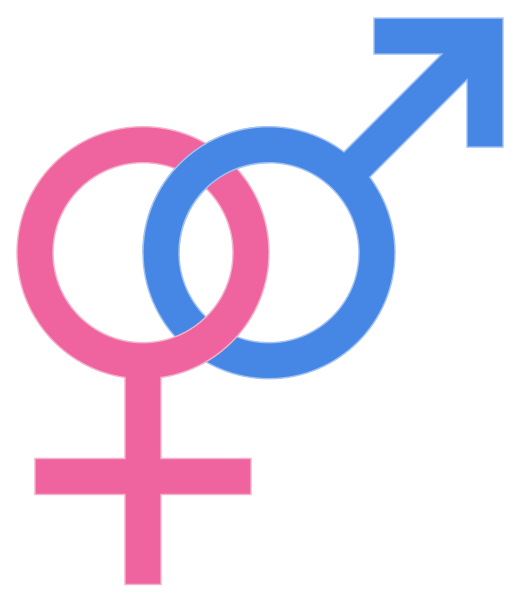 Sexuality is related to but distinct from sex (the physical distinction between men and women; also sexual intercourse) and gender (the social distinctions between men and women).¹ Sexuality is used to refer to erotic desires, practices, and identities and is also defined as aspects of personal and social life that have erotic significance.¹
Sexuality is related to but distinct from sex (the physical distinction between men and women; also sexual intercourse) and gender (the social distinctions between men and women).¹ Sexuality is used to refer to erotic desires, practices, and identities and is also defined as aspects of personal and social life that have erotic significance.¹
The debate over the morals of sexuality is one based on two sides: an increased awareness and acceptance of diversity and a defense of the established norms. The debate is shaped by the argument of whether sexual identity is biologically given, determined by genes, or is constructed in its entirety in society and culture.¹
The biological point of view is called an essentialist view and the social view is called a social-constructionist view.¹ The essentialist view of sexuality implies that all individuals are born heterosexual, and that heterosexuality is natural and normal. This reinforces heterosexual norms and suggests that heterosexuality should be accepted as the way things should be.
The demographics of sexual orientation are difficult to establish due to a lack of reliable data. Additionally, since sexuality is a social construction, it is possible to hide or misinform others of sexuality since it is not visible (as opposed to the social construction of race or the physical attributes of sex).
Definitions
There are four most well known sexual categories that people commonly identify: heterosexual, homosexual, transsexual, and bisexual.
- Heterosexuality: sexual and erotic attraction to the opposite biological sex;
- Homosexuality: sexual and erotic attraction to the same biological sex;
- Transsexual: a person born with the physical characteristics of one biological sex, who emotionally and psychologically feels that they belong to the opposite biological sex.
- Bisexuality: sexual and erotic attraction to the same and other biological sexes.
Queer Theory
Queer theory, a field of critical theory, came to be in the early 1990s and are related to the fields of LGBT studies and feminist studies. The theory builds upon feminist challenges to the idea that gender is part of the essential self. It also builds on gay/lesbian studies' close examination of the socially constructed nature of sexual acts and identities.²
This theory is grounded in gender and sexuality. Queer theory has two predominant strains²:
- Radical deconstructionism: interrogates categories of sexual orientations;
- Radical subversion: disrupts the normalizing tendencies of the sexual order.
 One of the most important queer theorists is Michel Foucault. He wrote on the historical understanding of constructions of sexuality. Additionally, he developed an anti-essentialist view of sexuality.¹ He believed that “Sexuality … is a name that can be given to a historical construct."¹ Foucault's idea is that the modern bodies of knowledge and sexuality (like psychoanalysis) have an intimate association with power structures of modern society. Individuals, Foucault argues, internalize the norms outlined by the sciences of sexuality and thus work to conform to these norms.
One of the most important queer theorists is Michel Foucault. He wrote on the historical understanding of constructions of sexuality. Additionally, he developed an anti-essentialist view of sexuality.¹ He believed that “Sexuality … is a name that can be given to a historical construct."¹ Foucault's idea is that the modern bodies of knowledge and sexuality (like psychoanalysis) have an intimate association with power structures of modern society. Individuals, Foucault argues, internalize the norms outlined by the sciences of sexuality and thus work to conform to these norms.
Some theorists explore whether bisexuality is a third sexual identity that may unsettle the previous binary sexual theory.¹
Reference:
1. Sexuality. Retrieved from http://faculty.washington.edu/mlg/courses/definitions/sexuality.htm
2. Queer Theory. Retrieved on May 1, 2014, from http://www.princeton.edu/~achaney/tmve/wiki100k/docs/Queer_theory.html
3. Michel Foucault. Stanford Encyclopedia of Philosophy. Retrieved on May 1, 2014, from http://plato.stanford.edu/entries/foucault
© BrainMass Inc. brainmass.com June 30, 2024, 9:26 am ad1c9bdddf